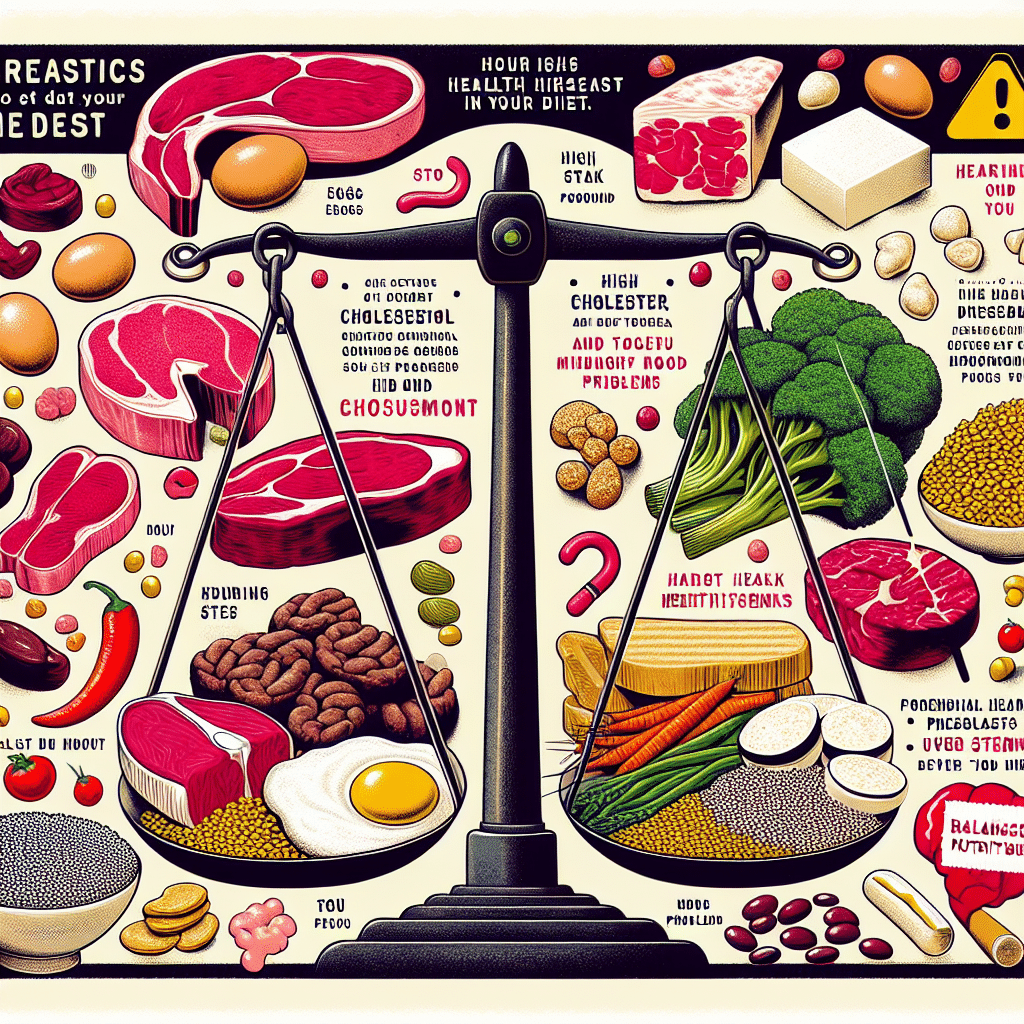Protein-Rich Foods: The Risks of Overemphasis
-
Table of Contents
- Protein-Rich Foods: Balancing Benefits and Risks
- The Importance of Protein in the Diet
- The Overemphasis on Protein-Rich Foods
- Health Risks of Excessive Protein Intake
- Environmental and Economic Considerations
- Case Studies and Statistics
- Finding the Right Balance
- Conclusion: Striking a Healthy Protein Balance
- ETprotein: Your Source for High-Quality Plant Proteins
Protein-Rich Foods: Balancing Benefits and Risks

Protein is a crucial macronutrient that plays a vital role in building and repairing tissues, producing enzymes and hormones, and supporting overall health. However, in recent years, there has been an overemphasis on protein-rich foods in some diets, which can lead to potential health risks. This article explores the importance of protein, the risks associated with excessive consumption, and how to maintain a balanced diet.
The Importance of Protein in the Diet
Proteins are made up of amino acids, which are the building blocks of our body’s cells. They are essential for:
- Muscle growth and repair
- Immune function
- Production of hormones and enzymes
- Transporting and storing nutrients
- Providing energy when carbohydrates are not available
While protein is undoubtedly important, the amount needed varies depending on age, sex, physical activity level, and overall health.
The Overemphasis on Protein-Rich Foods
With the rise of high-protein diets and fitness trends, there has been a surge in the consumption of protein-rich foods. This overemphasis can lead to an imbalance in nutrient intake and potential health risks.
Health Risks of Excessive Protein Intake
Consuming too much protein can lead to several health issues, including:
- Kidney damage in individuals with preexisting kidney disease due to the increased filtration burden
- Increased risk of heart disease associated with high intake of red and processed meats
- Impaired liver function due to the added stress of metabolizing excess protein
- Bone health issues, as excessive protein may lead to calcium leaching from bones
- Weight gain from consuming protein-rich foods that are also high in calories and fat
Environmental and Economic Considerations
Overconsumption of animal-based proteins also has environmental and economic implications, such as:
- Increased greenhouse gas emissions from livestock production
- Higher water usage for animal husbandry compared to plant-based proteins
- Greater land use leading to deforestation and loss of biodiversity
- Economic disparities caused by the high cost of some protein-rich foods
Case Studies and Statistics
Research has shown that diets high in red and processed meats are linked to increased risks of heart disease, cancer, and diabetes. For example, a study published in the “Journal of the American Medical Association” found that high red meat intake was associated with a higher risk of all-cause mortality.
Conversely, plant-based proteins have been associated with lower health risks. The “Adventist Health Study-2” reported that vegetarians had lower rates of heart disease, high blood pressure, diabetes, and obesity compared to non-vegetarians.
Finding the Right Balance
To avoid the risks associated with overemphasis on protein-rich foods, it’s important to find a balance. Here are some tips:
- Follow recommended dietary guidelines for protein intake based on individual needs
- Incorporate a variety of protein sources, including plant-based options like legumes, nuts, and seeds
- Choose lean cuts of meat and opt for fish and poultry over red and processed meats
- Be mindful of portion sizes and the overall balance of macronutrients in your diet
- Consult with a healthcare provider or a registered dietitian for personalized advice
Conclusion: Striking a Healthy Protein Balance
In conclusion, while protein is an essential part of a healthy diet, it is important to avoid the risks associated with overemphasis on protein-rich foods. By understanding the potential health issues, considering environmental and economic factors, and following a balanced approach to protein intake, individuals can maintain optimal health and well-being.
ETprotein: Your Source for High-Quality Plant Proteins
If you’re looking to incorporate more plant-based proteins into your diet, ETprotein offers a range of high-quality, organic protein products. Their selection includes organic rice protein, clear rice protein, pea protein, and more, all characterized by a neutral taste and non-GMO, allergen-free attributes. Ideal for various industries, ETprotein’s products are a sustainable and health-conscious choice for meeting your protein needs.
About ETprotein:
ETprotein, a reputable plant protein vegan protein Chinese factory manufacturer and supplier, is renowned for producing, stocking, exporting, and delivering the highest quality organic bulk vegan protein and plant proteins. They include Organic rice protein, clear rice protein, pea protein, clear pea protein, watermelon seed protein, pumpkin seed protein, sunflower seed protein, mung bean protein, peanut protein etc. Their offerings, characterized by a neutral taste, non-GMO, allergen-free attributes, cater to a diverse range of industries. They serve nutraceutical, pharmaceutical, cosmeceutical, veterinary, as well as food and beverage finished product distributors, traders, and manufacturers across Europe, USA, Canada, Australia, Thailand, Japan, Korea, Brazil, and Chile, among others.
ETprotein specialization includes exporting and delivering tailor-made protein powder and finished nutritional supplements. Their extensive product range covers sectors like Food and Beverage, Sports Nutrition, Weight Management, Dietary Supplements, Health and Wellness Products, and Infant Formula, ensuring comprehensive solutions to meet all your protein needs.
As a trusted company by leading global food and beverage brands and Fortune 500 companies, ETprotein reinforces China’s reputation in the global arena. For more information or to sample their products, please contact them and email sales(at)ETprotein.com today.














